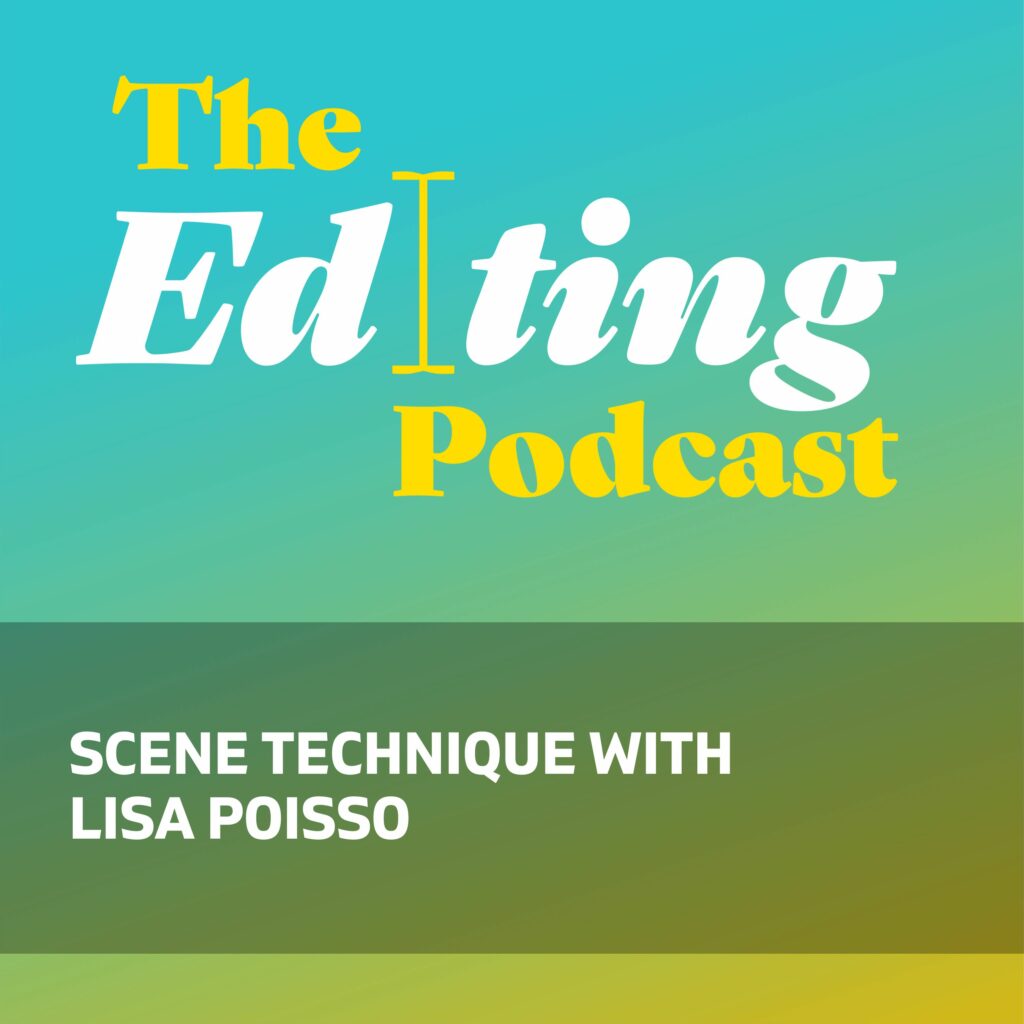Most people think they know what a scene is until they try writing one. (Isn’t that the way of most things involved in writing a novel?) So many first drafts begin with anything but scene: backstory, character sketches, thematic reflections, vignettes …
Without question, novels need scenes—so what are they? Your sense of scene-ness is probably more crisply honed than you realize. If I asked you to think of a scene you enjoyed in a favorite movie, your mind would leap to a visual of something happening—something you could describe with “I liked it when …”
You’d think about something happening.
You’d think about action.
The Editing Podcast
Join me in this conversation at The Editing Podcast with hosts Louise Harnby and Denise Cowle, two professional editors in the UK striving to help fiction and nonfiction authors and editors alike publish better books.
Listen to find out more about:
- What is a scene in a novel?
- Why are scenes important? What’s their purpose?
- Is there an ideal structure for a scene? Which components should be evident?
- Common problems with scene technique
- Tools that help authors overcome scene-technique problems
Resources mentioned in the show:
- K.M. Weiland’s Complete Guide to Scene Structure at Helping Writers Become Authors
- K.M. Weiland’s book: Structuring Your Novel
- K.M. Weiland’s companion workbook
Scene Accelerator coaching
Learn more about scene technique with one-on-one coaching from Lisa. The Scene Accelerator takes the mystery out of building effective scenes that drive the plot forward and draw readers into the characters’ experience.
Translating your story from outline to scenes can seem inscrutable until you learn the techniques. With coaching, you’re not simply studying dry strategies in a book or video course. You’re getting one-on-one feedback on identifying and applying these techniques in your own manuscript.
One week and area of focus at a time, we’ll explore new techniques, brainstorm alternative approaches, and identify untapped potential in your writing.
Scene Accelerator coaching is for you if—
- You’re having trouble moving from the story in your outline or head to scenes on the page.
- Your book includes a lot of exciting events, but readers don’t seem to be engaging with the story.
- Your book is all talk and no action, or all action and no thought.
- The manuscript reads like a report instead of a story.
- Your story is solid, but your manuscript is too long or too short for its genre.
I coach a limited number of clients per quarter. The waitlist is now open for Scene Accelerator coaching.
 Understanding how stories work changes everything. I’ll show you how to back up your creative instincts so your ideas hit home—from aspiring writer to emerging author. Ready to get serious about your book? Apply to work with me.
Understanding how stories work changes everything. I’ll show you how to back up your creative instincts so your ideas hit home—from aspiring writer to emerging author. Ready to get serious about your book? Apply to work with me.

